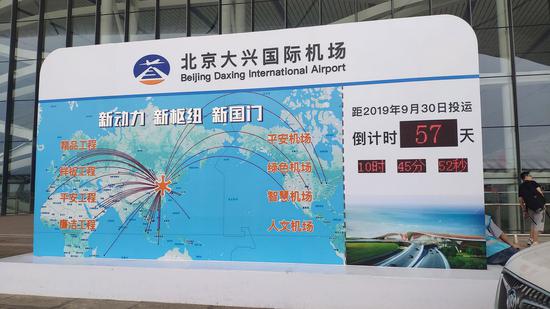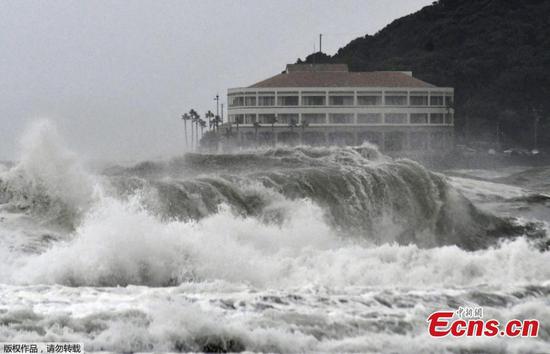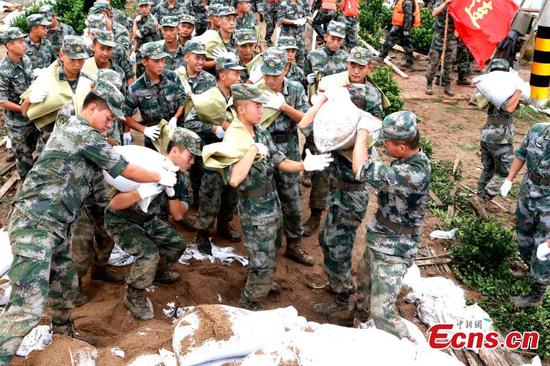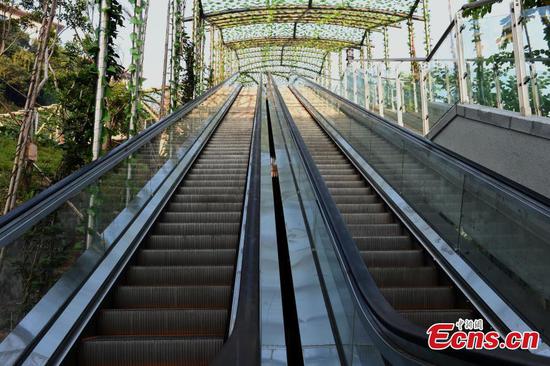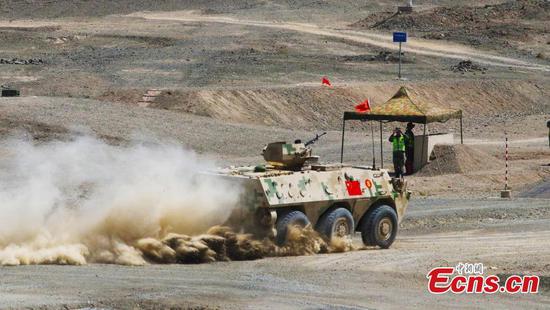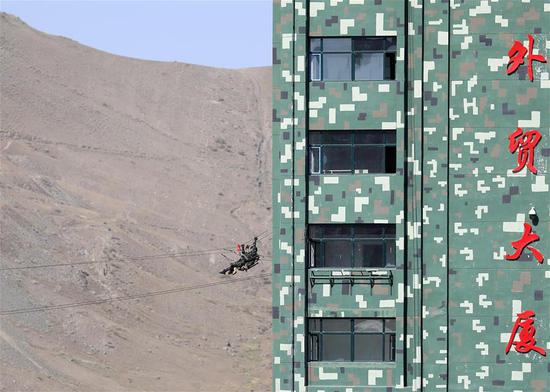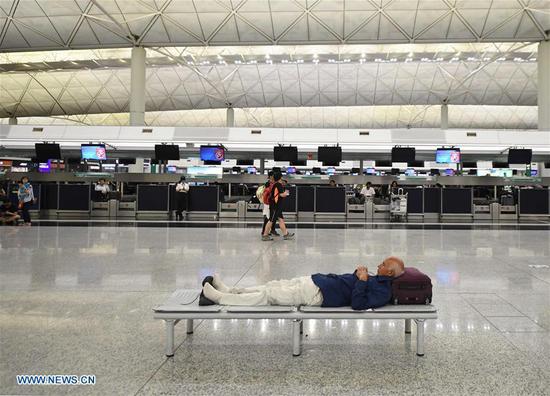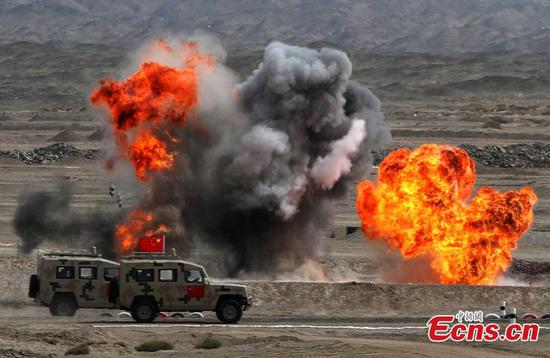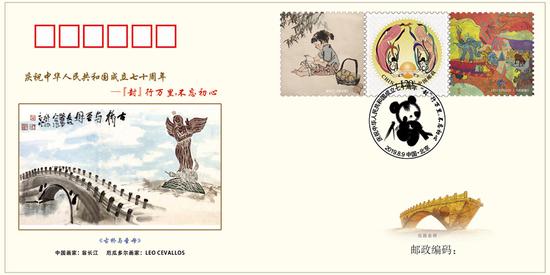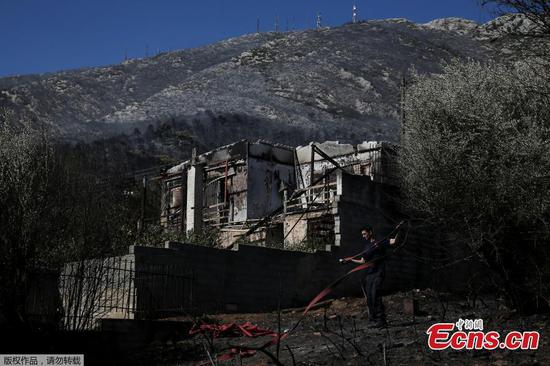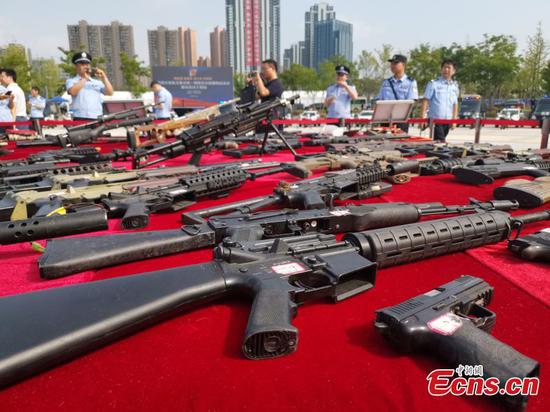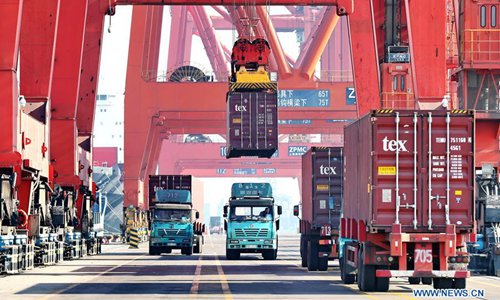
A container is loaded onto a truck at Jingtang port area of Tangshan Port, North China's Hebei Province, in January 2018. (Photo/Xinhua)
Chinese officials and experts expressed confidence in China's growth potential as the country's economy showed a stable trend in July amid the ongoing China-US trade war.
Statistics released by the National Bureau of Statistics Wednesday showed that the growth of the domestic economy slowed down in sectors including manufacturing and consumption in July, but robust exports and steady fixed assets investment were reported for last month.
"China's economy continued to perform within a reasonable range," bureau spokesperson Liu Aihua said at a news conference on Wednesday.
The situation was similar in the consumption sector. In July, retail sales of consumer goods grew 7.6 percent on a yearly basis, down from 9.8 percent in June. Liu attributed the decline to falling automobile sales.
Liu stressed that China's new economic growth momentum is growing, such as the rising proportion of new economies in the GDP. Vitality in the private sector also brings vigor to the economy, she said.
"China's economy has a solid basis for further growth in the next period," Liu said.
Exports showed promising signs, Chinese experts said. Exports grew 10.3 percent year-on-year in July, up 4.3 percentage points compared with June, the bureau data showed.
Growth in the consumption and manufacturing sectors slowed during the month.
The added value of major industrial enterprises grew 4.8 percent year-on-year in July, down from 6.3 percent in June.
"The slowing growth shows that China is indeed facing pressure, but not in an unexpected way," said Tian Yun, vice director of the Beijing Economic Operation Association.
"China's exports still maintain a strong growth trend. In particular, the advantages of private sector exports are showing up. This is pointing toward the momentum of China's economic growth," Tian said.
Trade war impact
Wang Jun, a deputy director of the department of information at the China Center for International Economic Exchanges, said that the statistics showed China's international market demand was stable despite the trade friction.
"The trade war didn't hurt China's economy as much as some people had thought," Wang noted, "as China is multiplying its trade channels and China-US trade only accounts for a little over 10 percent of China's overall trade, and therefore the impact from the trade war is under control."
Wang nevertheless warned that the July statistics showed weak domestic demand was much harsher as China undergoes economic structural transition.
The US government Tuesday announced a delay in imposing a 10 percent tariff on certain goods originating from China, including cell phones and laptops, to December 15.
China's financial markets were stable Wednesday, with the benchmark Shanghai Composite Index rising 0.42 percent. The yuan's central parity rate against the US dollar rose 14 basis points, which is a mild fluctuation.
Bureau data showed investment in high-tech manufacturing grew 11.1 percent and 11.9 percent in high-tech service industries, year-on-year in the first seven months of 2019, beating average investment growth.
The Consumer Price Index, a gauge of inflation, also was stable in July with 2.8 percent growth, compared with 2.7 percent in June.
Stronger policy strength
Some experts suggested that the government "increase policy strength" to further propel the domestic economy in upcoming months.
"China's consumption and investment sectors have further growth potential," Tian said. "More efforts should be made by the government to push the development in those areas in the second half of this year."
Liu Xuezhi, an economist at the Bank of Communications, told the Global Times that an interest rate cut could be an option if China's third-quarter economy significantly slowed.
But he cautioned that the government should not waver in curbing real estate bubbles.
"The government should continue with marginal monetary easing and keep liquidity at a reasonably sufficient level to boost market confidence," Liu Xuezhi said.
Wang suggested the government increase financial expenditure and ease the deficit rate to support infrastructure construction.










